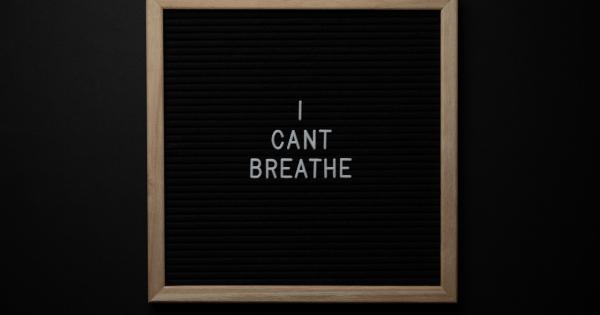Unhappiness can manifest itself in various ways, affecting our thoughts, emotions, and behaviors. Understanding these behaviors can help shed light on why someone may be feeling unhappy and provide insights on how to address them.
In this article, we will explore the 16 behaviors commonly observed in individuals who are unhappy.
1. Negative Thinking
Negative thinking is a common behavior observed in unhappy individuals. They tend to focus on the negatives, magnify failures, and have a pessimistic outlook on life.
Positive events are often dismissed or overshadowed by the negatives, leading to a perpetuation of unhappiness.
2. Constant Complaining
Unhappy individuals often have a habit of constant complaining. They frequently express dissatisfaction about various aspects of their life, relationships, work, or personal circumstances.
This habit of complaint reinforces negativity and perpetuates the cycle of unhappiness.
3. Lack of Gratitude
Unhappy individuals often struggle to find things to be grateful for. They fail to appreciate life’s blessings, focusing instead on what they lack.
The absence of gratitude can undermine happiness and prevent individuals from recognizing the positive aspects of their lives.
4. Social Withdrawal
Unhappiness can lead to social withdrawal. Unhappy individuals may isolate themselves from social activities, avoid interactions, and build emotional walls to protect themselves from potential pain or rejection.
This behavior further exacerbates their unhappiness by limiting social support and connection.
5. Seeking External Validation
Those who are unhappy often seek external validation to boost their self-esteem. They rely on others’ opinions and approval to feel validated and worthy.
This behavior creates a dependency on others’ validation and makes individuals vulnerable to criticism and rejection.
6. Difficulty in Forgiving
Forgiveness is a challenging process for unhappy individuals. They may hold grudges and be unwilling to let go of past hurts. This behavior keeps them anchored in negativity and prevents them from moving forward towards healing and happiness.
7. Self-Criticism
Unhappy individuals tend to engage in excessive self-criticism. They are often their harshest critics, focusing on their flaws, failures, and shortcomings. This behavior erodes self-esteem and further contributes to feelings of unhappiness.
8. Overthinking
Overthinking is a common behavior in unhappy individuals. They constantly ruminate about past events, worry excessively about the future, and struggle to live in the present moment.
Overthinking leads to anxiety and prevents individuals from finding peace and happiness in the present.
9. Lack of Self-Care
Unhappy individuals often neglect self-care. They may fail to prioritize their physical and emotional well-being, neglecting basic needs such as proper nutrition, exercise, and rest.
This behavior further contributes to feelings of unhappiness and dissatisfaction.
10. Fear of Change
Those who are unhappy often fear change. They resist stepping out of their comfort zones and cling to familiar but unsatisfying circumstances. This fear of change limits growth, opportunities, and the potential for finding happiness.
11. Perfectionism
Unhappy individuals may exhibit perfectionistic tendencies. They set unrealistically high standards for themselves and often engage in self-criticism when they fall short.
This behavior creates chronic dissatisfaction and prevents individuals from experiencing contentment and joy.
12. Lack of Boundaries
Unhappy individuals often struggle with setting and maintaining healthy boundaries. They may struggle to say “no,” leading to feelings of being overwhelmed, taken advantage of, or unappreciated.
This behavior compromises their overall well-being and contributes to feelings of unhappiness.
13. Avoidance of Difficult Emotions
Unhappy individuals often avoid or suppress difficult emotions. They may distract themselves from their feelings through unhealthy coping mechanisms such as excessive work, substance abuse, or numbing activities.
This behavior prevents emotional growth and hinders the path to happiness.
14. Comparison with Others
Comparing oneself to others is a common behavior observed in unhappy individuals. They constantly measure their success, achievements, and appearance against others, often feeling inadequate or inferior.
This behavior perpetuates feelings of dissatisfaction and prevents individuals from finding contentment within themselves.
15. Resistance to Seeking Help
Unhappy individuals often resist seeking help or support. They may view it as a sign of weakness or fear judgment and stigma.
This behavior prevents them from accessing valuable resources, guidance, and healing opportunities that could contribute to their overall happiness and well-being.
16. Lack of Life Purpose
Individuals who are unhappy often struggle with finding a sense of purpose or meaning in life. They may feel directionless, unfulfilled, and disconnected from their passions and values.
This lack of purpose can contribute to a deep sense of unhappiness and dissatisfaction.
Conclusion
Recognizing the various behaviors of unhappiness is the first step towards finding solutions and embarking on a journey towards happiness.
By understanding these behaviors, individuals can make conscious efforts to break free from negative patterns and cultivate behaviors that promote well-being. Seeking support, practicing gratitude, setting boundaries, and embracing self-care are just a few examples of interventions that can facilitate lasting happiness.






























